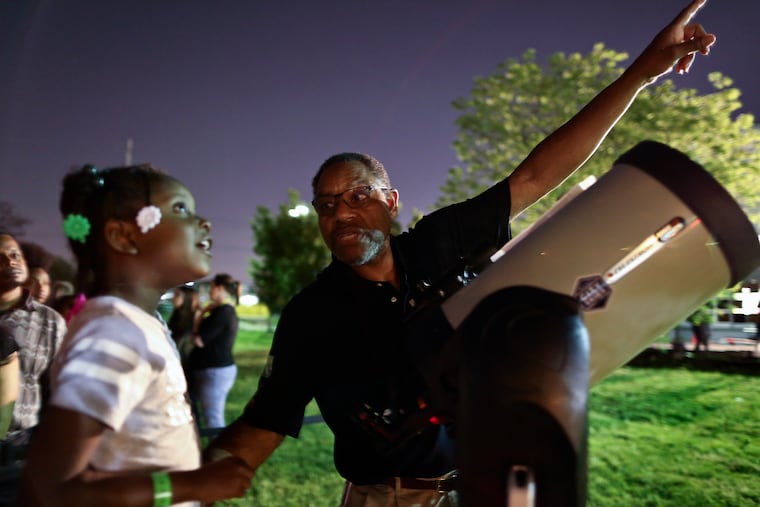How Philadelphia can lead in STEM education | Opinion
A city like Philadelphia has all the pieces of the STEM education puzzle.

Anyone with a stake in education keeps hearing that the United States must stay globally competitive, particularly when it comes to STEM: science, technology, engineering, and math. Education plays a vital role in this; yet after decades of trying to find the best approach, we as a nation are still solving this complicated puzzle.
A December 2018 report published by the Committee on STEM Education of the National Science and Technology Council hopes to get us there.
It irons out a clear strategy for aligning toward a vision “where all Americans will have lifelong access to high-quality STEM education.” Three proposed pathways in the report stand out as core to achieving this: strategic partnerships, meaningful and inspiring learning opportunities, and computational literacy. And as we hope to show during the Philadelphia Science Festival, starting April 26, Philadelphia can lead on all three paths.
Why these three approaches? Strategic partnerships reinforce relationships and create avenues for better allocation of resources. This leads to more effective ways to engage people in learning opportunities — the second path — that meets them where they are, laying the groundwork for thoughtful educational and career trajectories. Computational literacy, including digital literacy and awareness of cybersecurity, will clearly define the future of a well-rounded STEM education by helping people develop the skills required to solve complex problems.
A city like Philadelphia has all the pieces of the STEM education puzzle. Our region is academically rich in potential from pre-K to higher education, with one of the highest concentrations of “eds and meds” in the country. We have some of the world’s best and most recognized science institutions. We are increasingly recognized as a hot spot for tech, and we have an active nonprofit and philanthropic base that supports bold endeavors.
There is no doubt that Philadelphia has a robust STEM education ecosystem. We all need to recognize the role we must play in making it effective.
At the Franklin Institute, we place high value on leveraging partnerships to engage the Philadelphia community through informal science learning. The annual Science Festival serves as a prime example of how we effectively convene a host of community organizations to galvanize and energize the region to showcase and celebrate Philadelphia as a city of science.
With continued focus on strategic partnerships, we, as a city, can fully understand our core strengths and determine where to expand what works, and where to eliminate what doesn’t. With clear synergy between formal and informal learning environments from pre-K to higher education, we can inspire current and future generations. With a commitment to building computational skills among all our youth, regardless of zip code, we can overcome inequalities that keep us from truly realizing our full potential.
Philadelphia has come a long way both economically and in our ability to collaborate to address complex needs. With this recent strategic outline from the federal government, we can push toward a unified approach that meets the unique challenges and opportunities of this great city. To lead, we cannot overlook the socio-economic disparities that plague us. It is time to support fully our city’s need for high-quality STEM education.
The Science Festival, for the last nine years, has served as a national model for how to build community and engage an entire region through informal STEM education. Over nine days, science will explode in communities across the region reaching Philadelphians where they live, work, and play.
The federal strategy represents an “urgent call to action for a nationwide collaboration.” The Franklin Institute, together with our 200 partners and 36 sponsors that support the Philadelphia Science Festival, is responding to that plea this week, but our collective work will not and should not stop until Philadelphia peaks as a global leader in STEM education.
Darryl Williams is senior vice president of science and education at the Franklin Institute. dwilliams@fi.edu